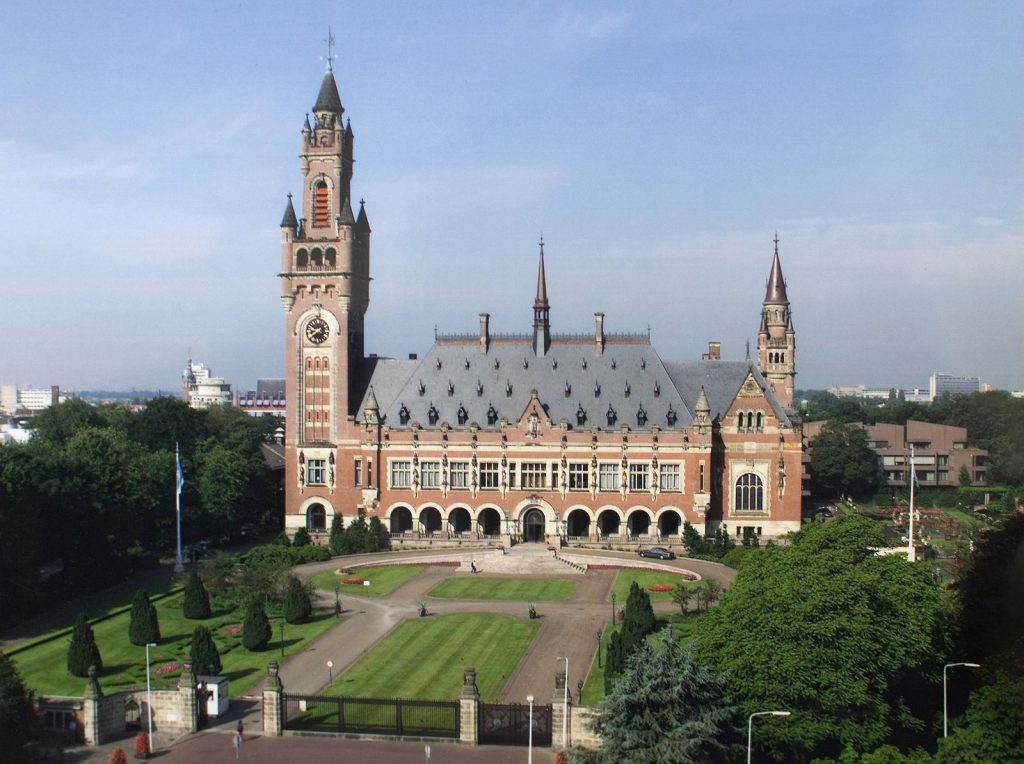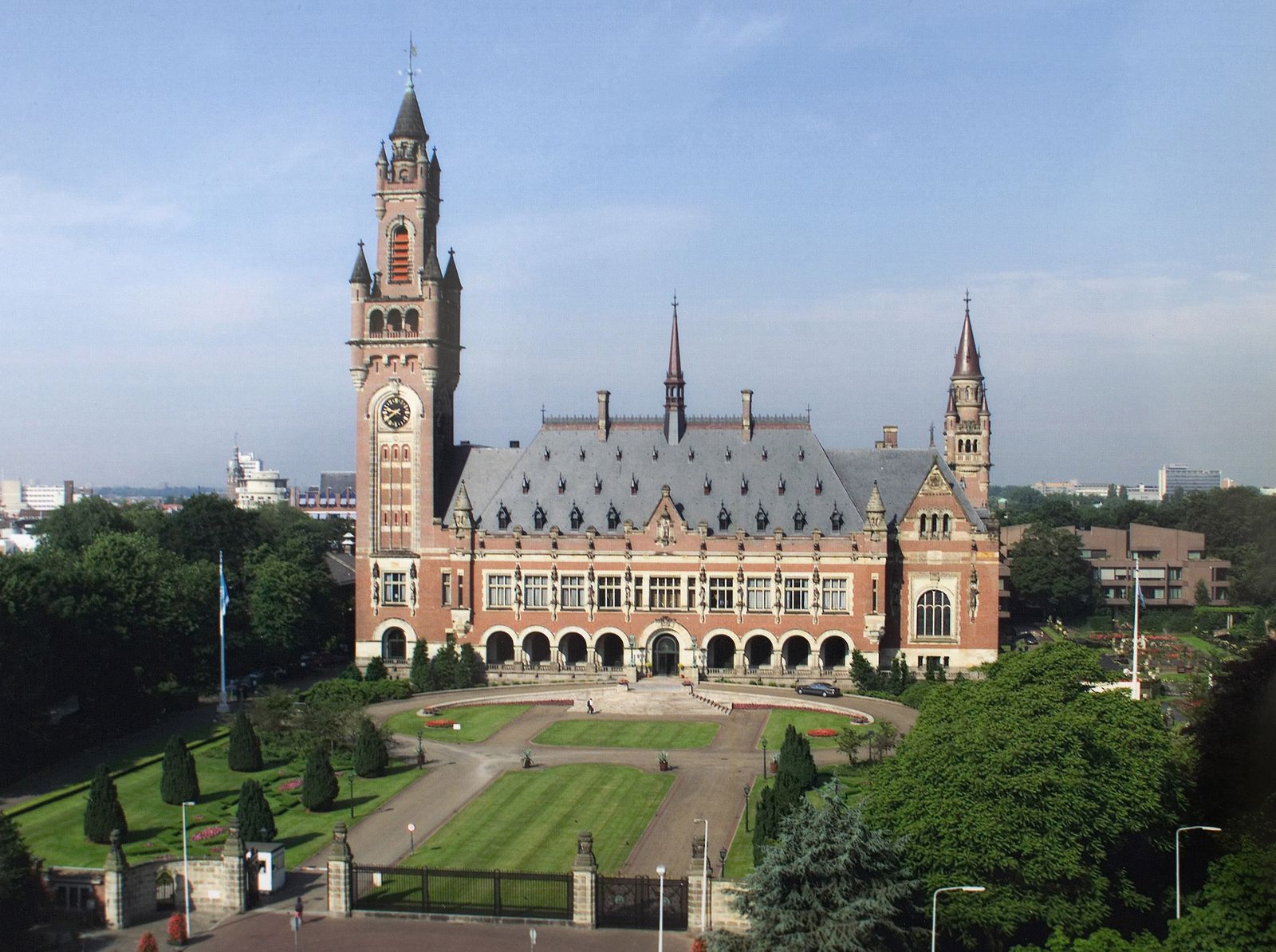
In 2019, The Gambia brought Myanmar before the International Court of Justice (ICJ) over the genocide of its Rohingya minority, presenting a bold challenge to unchecked state power and a hopeful step toward accountability (International Court of Justice, n.d.). However, the reality is that the ICJ frequently lacks the power to enforce its rulings, leaving justice more symbolic than substantive.
The International Court of Justice, often referred to as the World Court, holds jurisdiction over the world’s most powerful and influential actors: sovereign states. In addition to disputes involving states, the ICJ also provides advisory opinions, offering legal guidance to United Nations bodies. However, despite being the principal judicial organ of the United Nations, the ICJ has fallen short in its effectiveness due to limited enforcement mechanisms, narrow jurisdiction, and challenges in addressing contemporary global issues.
One of the ICJ’s most crucial flaws is that rulings are only binding if the parties involved consent to accept its jurisdiction. If states refuse to do so, they are free to disregard ICJ rulings in favor of pursuing national interests. In these situations, ICJ-issued “decisions” ultimately sound more like “suggestions”—symbolic statements that are strongly worded but practically lack any weight.
Another problematic aspect of ICJ jurisdiction in today’s global theater is that it can only settle contentious cases involving states. Article 34 of the ICJ Statute explicitly states, “Only states may be parties in cases before the Court,” which excludes—and some may say excuses—non-state actors, namely multinational corporations (United Nations, 1945, Article 34). In our globalized world, many corporations have become just as influential as—if not more influential than—sovereign states. Ultimately, their potential influence raises questions about accountability. A good example is the Chevron oil contamination case in Ecuador. Chevron’s operations in the Amazon rainforest caused severe harm to indigenous communities when it deliberately dumped over 16 billion gallons of toxic waste into rivers. The victims sought justice in legal battles, but this was a struggle due to jurisdictional issues with the U.S. and Ecuador, dragging on for decades (Amazon Watch, 2024). If the ICJ had jurisdiction over non-state actors like Chevron, binding rulings could have imposed accountability for environmental damage linked to corporate activities in a timely manner.
It seems like ICJ “decisions” are largely symbolic. After all, without any kind of independent enforcement mechanism, how can the ICJ actually uphold accountability? While non-binding international norms can greatly influence world politics, they can only go so far. Currently, the United Nations Security Council is the only UN organ with enforcement power. The problem with this is that the scope of the UNSC’s mandate is limited. The Council is tasked with upholding international peace and security by imposing sanctions, authorizing the use of force, and deploying peacekeeping missions (Fasulo, 2015).
In other words, the most prominent international institution with enforcement power covers “security” matters, which it has traditionally defined “as safety from physical assault” (Fasulo, 2015). This is a narrow definition, and an even narrower scope of issues the UN Charter outlines can actually be enforced. Other aspects of international politics, such as the environment, fall outside the UNSC’s mandate despite their urgency. With binding authority, the ICJ could hold powerful states accountable for climate violations, safeguarding vulnerable nations from environmental degradation and its disastrous impacts.
By granting the ICJ enforcement power, how exactly will it differ from the UNSC? The answer is the two organs’ vastly different political power balances. In the Security Council, the P5 members (China, France, Russia, the United Kingdom, and the United States) have the ability to unilaterally veto resolutions and pursue self-interest over collective goals. However, ICJ judges serve as independent arbiters, not as delegates of specific states. Enforcement decisions would be put out by impartial judges, largely reducing politicized motives in favor of promoting justice.
Some may resist expansion of the ICJ’s mandate by citing state sovereignty. Although this principle is certainly important, stronger international oversight wouldn’t strip nations of their ability to govern themselves. It simply acknowledges that states can overstep international law, especially in situations involving marginalized groups. These groups rarely have the ability to advocate for justice, and states have historically brought cases before the ICJ on their behalf, such as the ongoing case of The Gambia v. Myanmar. When domestic systems fail in affirming these rights, accountability must be upheld.
It’s time to reform the ICJ and give it the power to reflect contemporary realities, holding both states and corporations accountable. Justice cannot depend on non-binding suggestions—the ICJ requires enforceable rulings that solidify its role as an independent arbiter of international law.
The opinions on this page do not necessarily reflect those of The Sandspur or Rollins College. Have any additional tips or opinions? Send us your response. We want to hear your voice.







Comments are closed.